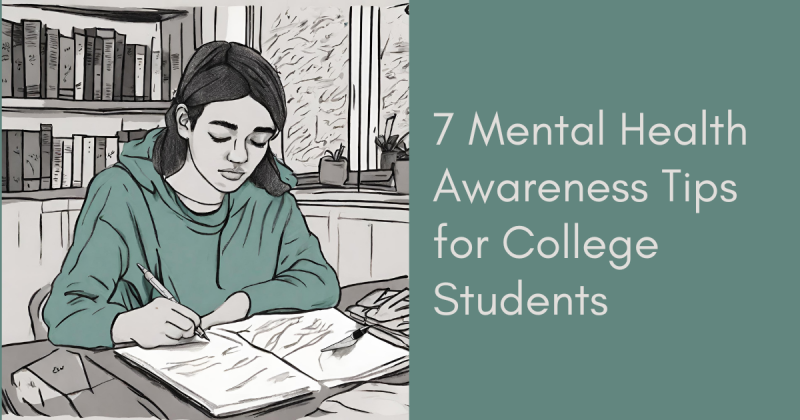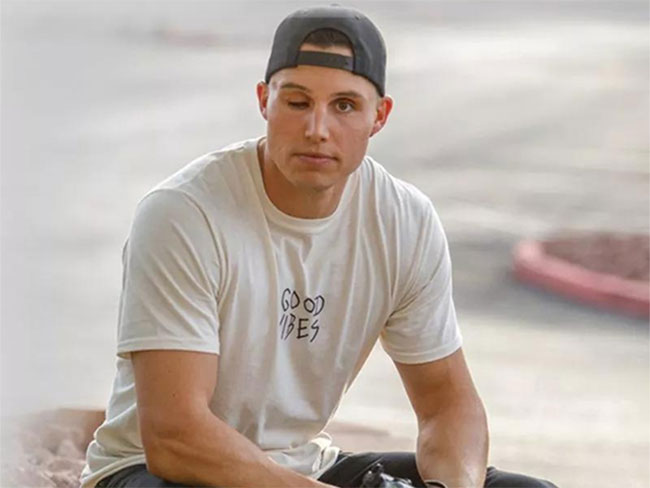Climate Change Is Hurting Our Mental Health. How ‘Climate Cafes’ Can Help

Table of Contents
“I feel hopeless.”
“I feel helpless.”
“How do I cope with constant sadness, grief, anger, anxiety, or fear when I’m just trying to get through a normal day?”
“How do I plan for retirement?”
“How do I plan for my thirties?”
“What kind of world will my children grow up in?” “Should I even have children?”
“Am I doing enough? Am I enough?”
These are the types of worries that came up at a recent “Climate Cafe LA,” a free, virtual support group that aims to provide an informal, confidential space for people to connect with each other about the painful emotions that come with living in the climate emergency.
A dozen or so people popped into the Zoom “Climate Cafe” being held on this Sunday morning. About half of them left their cameras off (that’s totally OK, though cameras on is preferred). After setting ground rules — only “I” statements, no advice or judging allowed — the conversation began. People shared about their favorite landscapes, their worries for their own futures or their children’s, the sense of sadness, anxiety, anger and cognitive dissonance they feel all too often, even in the most mundane moments like watching a neighbor mow a lush lawn or idle their car for too long.
With ceaseless headlines of climate disasters around the world and the escalating impacts to our own backyards here in the Southland, there’s a growing movement to address the intertwined crises of mental health and the climate emergency. The efforts range from community-based support groups such as Climate Cafes, to the practice of “ecotherapy,” to boosting training for therapists, psychologists and other public health professionals to better recognize the physical symptoms of climate-related psychological distress.
The most widespread public health impacts of climate change are actually mental impacts.
— Wael Al-Delaimy, public health professor, UC San Diego
“The most widespread public health impacts of climate change are actually mental impacts,” said Wael Al-Delaimy, a public health professor at UC San Diego.
Holding space for climate emotions … and finding community
Maksim Batuyev first started experiencing depression when he was about 13 years old, growing up in Michigan.
“This was before climate change was even on my radar,” said Batuyev, who is now 25.
His depression improved with therapy and mindfulness practices, but once he got to college and started pursuing environmental studies, Batuyev said that progress was reversed.
“I went on to spend four years learning about all the different ways that humans were irreparably damaging the planet and poisoning communities,” Batuyev said.

Maksim Batuyev, 25, is the director of the Climate Cafe LA Initiative and a Gen Z advisor for global nonprofit Climate Mental Health Network.
(Courtesy of Maksim Batuyev)
By his senior year, his depression and anxiety were once again overwhelming.
“I realized I’d never been told how to navigate the grief that was coming with this,” Batuyev said. “The climate crisis was just this, like, intense backdrop to what was supposed to be a normal college experience in young adult life … and the normal hardships of growing up.”
Why ‘Climate Cafes’?
-
The Climate Cafe model was inspired by the concept of “Death Cafes,” coined by a Swiss sociologist in 2004 who aimed to create spaces, often at cafes, where people could talk freely about their worries and feelings around death.
After graduating, he moved to Los Angeles to work for a sustainable fashion startup. Now, he’s a Gen Z advisor for the global nonprofit Climate Mental Health Network and the director of Climate Cafe LA.
There’s no brick and mortar cafe, it’s simply people getting together in person or online for free, informal, 90-minute conversations about coping with climate-related emotions.
Batuyev initially piloted the conversations with student groups at UCLA and is now offering Zoom Climate Cafes he co-hosts with other Gen Z facilitators. Such gatherings are a growing trend worldwide.
“It’s really about creating a container for us to bring these difficult emotions to the surface,” said Batuyev. “Because all too often we have to stuff them down just to get through our day-to-day lives. We’re trying to put food on the table, we’re trying to get to work on time. We’re stuck processing those emotions in isolation.”
Younger people are particularly impacted — they wonder how much of the Earth will be habitable by the time they’re in their 40s and 50s. In the largest study of its kind, a 2021 survey of 10,000 young people across the world found the vast majority experience emotional distress over the climate crisis on a daily basis, while more than half feel humanity is doomed.
Climate Cafes are mostly geared towards Gen Z, but they’ve proven to be needed spaces for people of all ages and walks of life.
At the recent virtual Climate Cafe LA, folks from all over the world joined — from Canada to India to the U.K. to New Jersey to right here in Los Angeles. The attendees encompassed a range of ages and professions: activists, therapists, a veteran, scientists and a faith worker. Though a small sample, the group exemplified the diversity of who is struggling with climate-related emotional distress.
Listen to Maksim Batuyev discuss his mental health journey and coping with climate emotions
Feeling our feelings … without the need to act
Batuyev said one of the most important — and perhaps surprising — parts of the Climate Cafe is that it explicitly pushes back against the action-oriented narrative that’s common in most climate spaces.
“I think a lot of times when people think about climate, they imagine saving the polar bears, they imagine protesters, they imagine people yelling at each other or demanding that others sign petitions, and it’s kind of easy to understand why not everyone’s comfortable starting to engage in that way,” Batuyev said.
But providing a space simply to feel emotions, and not act on them, can allow people to build community and find ways to engage with the climate crisis in their own way, Batuyev said.
“When we’re able to help people connect with these intense emotions of grief or despair or anxiety around these issues, what we’re really doing is also helping them connect with a place of love,” Batuyev said. “These emotions themselves are very often transformative and what drive us to act and get involved, but I think our problem is that we lack a community around us that enables us to express ourselves and experience these emotions in a safe and comfortable way.”
When we’re able to help people connect with these intense emotions of grief or despair or anxiety around these issues, what we’re really doing is also helping them connect with a place of love.
— Maksim Batuyev, director of the Climate Cafe LA Initiative
An accessible support model
Listen to Isaias talk about his mental health journey and coping with climate emotions
Though Climate Cafes are not meant to replace professional help, therapy itself can be out of reach for many people, so these groups can provide support for those who otherwise may not be able to access it, said Isaias Hernandez, 27, who grew up in Sylmar and is the creator of environmental education platform Queer Brown Vegan.

Isaias Hernandez, 27, is the founder of education platform Queer Brown Vegan. He created a Climate Emotions Scale to help people name the feelings they’re experiencing around climate change.
(Courtesy of Isaias Hernandez)
Additionally, he said this kind of grassroots peer-to-peer model can be replicated to fit the needs of many different communities.
“Mental health services are expensive. It’s a privilege to afford it,” Hernandez said. “Creating grassroots models that center a need for community and a safe space is important.”
Hernandez created a climate emotion scale to help people find the language to describe their climate-related emotions.
“When someone else validates another person about what they’re feeling,” Hernandez said, “I think that allows them to say ‘It’s not just in my head, it’s not a disorder, it’s a natural response to what I’m experiencing.’”
How to cope with climate emotions
-
- Recognize and name your climate emotions — here are some helpful tools to find the words:
-
- Allow yourself to feel those feelings without pressuring yourself to take action
- Use breathing exercises or other types of “grounding” techniques to bring yourself back to the present and ease panic. Getting out in your favorite nature spot can be extremely helpful for this.
- When you’re ready to take some action…don’t feel the need to go big or change your whole life at once. Find what aligns with your personal interests and passions. This Venn Diagram of climate action by marine biologist Ayana Elizabeth Johnson can help you sort through that.
Recognizing and acknowledging the emotions that are driving our internal narratives around climate change is an important first step to coping and building mental resilience, said Long Beach-based therapist Carol Bartels, who specializes in “ecotherapy,” where clients process their emotions outside in a natural setting.
Coping with those feelings comes down to a lot of well-researched strategies in trauma recovery, she said.
“That is finding a sense of safety, finding the resources inside of our own bodies to relax and to feel a sense of some control and ability to regulate our own emotions,” Bartels said.

Carol Bartels is an ecotherapist based in Long Beach. Here she is at DeForest Wetlands in Long Beach, one of her favorite places to take clients.
(Courtesy of Carol Bartels)
Listen to Carol Bartels discuss climate emotions and strategies to cope
Using breathing exercises or other forms of “grounding” to return to the present moment can help us alleviate panic and find safety and calm within our own bodies, said Bartels. To help her clients get there, Bartels often takes them outside — what’s called “ecotherapy.”
“Getting grounded in one’s own body, feeling what’s really going on inside of us — nature has a way of helping us tune into that and bringing us right into the present moment,” Bartels said. “Nature does half of the healing.”
Taking action … when you’re ready
Bartels said once you can recognize and hold space for your own climate-related emotions — whether it be grief, anxiety, anger, fear, despair or all of them at once — taking action can play an important role in further building mental resilience.
-
See our guide on the climate emergency, which includes information on what meaningful actions you can take in your own home, as well as what efforts are happening locally to address the climate crisis.
“It doesn’t have to be some grand action of changing the world, but maybe getting involved at a more local level of sustainable projects, or even just within one’s own home,” Bartels said. “We can channel these emotions into something that we do have control over, because the feeling of lack of control is such a big problem with this issue.”
We can channel these emotions into something that we do have control over, because the feeling of lack of control is such a big problem with this issue.
— Carol Bartels, ecotherapist in Long Beach
To cope with her own overwhelming climate emotions, Bartels grew a permaculture food forest in her backyard. She emphasized that choosing actions rooted in one’s own personal passions and interests — not “shoulds” — is essential to building true emotional resilience.
“As we move forward, we’re going to need educators and healers and artists and musicians,” Bartels said.
The next global mental health crisis?
The UC San Diego public health professor, Wael Al-Delaimy, has firsthand experience of the impacts of war and displacement on mental health. Originally from Iraq, Al-Delaimy spent most of his career as an epidemiologist working with refugees in the Middle East and here in Southern California.
Today, he sees the mental health impacts of the climate crisis on people all over the world as the next major public health challenge. He’s currently researching how climate disasters are affecting the mental health of people in the Middle East.

Wael Al-Delaimy is a public health professor at UCSD who’s researching how the climate crisis is impacting the mental health of people in the Middle East.
(Courtesy of Wael Al-Delaimy)
“The physical impacts are limited to people who are injured, who may die from extreme weather events,” Al-Delaimy said. “And this is small compared to the much more widespread mental illnesses, psychological impacts, which can become chronic. People become traumatized.”
For example, he said, people who have survived a wildfire or serious flooding may be triggered every time they smell fire, or every time it rains. He pointed to how research has found that violence and suicides increase during extreme heat events. There’s also the concept of solastalgia, the emotions that come with watching beloved landscapes change and disappear, upending livelihoods and cultural traditions — something Indigenous communities around the world have coped with for generations.
“The health care system is not prepared for either the acute nor for the chronic [mental health] conditions from climate change,” Al-Delaimy said.
He said physicians and mental health professionals alike need to be trained in talking to their patients about climate-related mental health concerns. And that training needs to be culturally aware, particularly in longtime landing spots for refugees and immigrants such as southern California.
“The mental health crisis is there without climate change,” Al-Delaimy said. “Climate change is just going to make it worse.”
The mental health crisis is there without climate change. Climate change is just going to make it worse.
— Wael Al-Delaimy, UCSD public health professor
But Al-Delaimy said he sees a lot of promise in the peer-to-peer support model, such as Climate Cafes. For example, his research on community health workers doing outreach with Somali, Iraqi and Syrian refugees in San Diego during COVID found communities were far more likely to trust and engage with workers from their own communities.
“Mental illnesses are hidden. There’s denial about them. There’s a stigma about it,” Al-Delaimy said. “But they’re like any other chronic disease …They need attention. Without that, our society will continue to suffer.”
Resources for people seeking help with climate emotions
-
- The Climate Mental Health Network also has many other resources, including for parents and young children. Their resources are often available in both English and Spanish.
Resources for health professionals
-
This free e-book includes a section on climate psychology and is geared towards community leaders, academics, faith leaders and policy makers.
-
The American Psychological Assn. has now published two reports on the mental health impacts of climate change. View the latest report here.
Climate Emergency Questions
Fires. Mudslides. Heat waves. What questions do you need answered as you prepare for the effects of the climate emergency?








